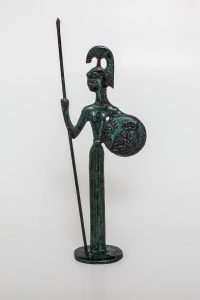A Boy Is a Gun
In All The Pretty Horses, Cormac McCarthy uses symbols to sketch the fluid concept of masculinity through the experiences of John Grady Cole, Rawlins, and Blevins, examining how relationships of power frame manhood as violence […]
Exile: How Crossing Borders Became an Unwitting Gift
Being in a safe zone outside of Nicaragua leads Belli to reevaluate her personal and political views, allowing her to reshape herself into a person who thrives both as a revolutionary and mother.
Hollywood, the City of Dreams and Nightmares: Mentalisation and the Uncanny in David Lynch’s Mulholland Drive
While it is easy to pinpoint aspects of the film where it is surreal, understanding why Mulholland Drive is uncanny is much more difficult, because what causes our perception of the Uncanny is not as well understood.
Curated Chaos: The Manipulation of Colour and Identity in Mulholland Drive
In Mulholland Drive, David Lynch uses colour to deepen viewers’ understanding of the protagonist Diane Selwyn.
The Duality of Light and Darkness in All The Pretty Horses
Sometimes, when the darkness of reality is too much to bear, one becomes desperate to grasp the light that fantasy provides. In this desperation, one’s stubbornness in forcing fantasy into reality can blind us to the darkness we might bring […]
Orlando: The Search for Truth and Other Mirages
On these levels, Orlando questions biographical conventions by fictionalizing the subject and focusing primarily on their subjectivity.
A Poetic Goose Chase: Virginia Woolf on the Writer’s Reason
Building on the work of a number of writers who have explored Woolf’s engagement with time and temporality, I re-read her image of writings as a “wild goose chase” to emphasize the open-endedness of this aspect of her work.
Bechdel, Baudelaire, and an Authentic Retelling: The Photo-Graphic Novel
[…] Bechdel’s autobiographical graphic novel Fun Home suggests that the combination of both objectivity and subjectivity, realistic sketches of photographs and cartoonish drawings, result in the most truthful expression of her life.
The Inevitable Immeasurable Loss in Death: Alison Bechdel’s Fun Home
Death in Alison Bechdel’s Fun Home obscures representation; death simultaneously reveals and simplifies the concealed dimensions of Bechdel’s father – ultimately, overriding who he really was.
Power and Patriarchy? The Importance of Female Characters in The Odyssey
The powerful role female characters play in the epic is worth studying since it was created during a time when women weren’t given much importance and acted mostly to support male characters.









